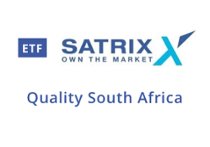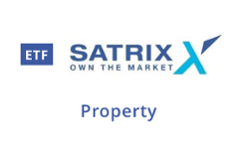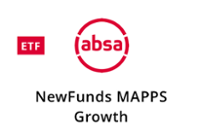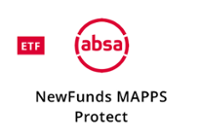Intellidex Reviews for May 2018
April was a good month for ETF investors, particularly those invested in international funds. Local equities recouped most of the losses incurred in March as the all share index gained 5.4% month-on-month (m-o-m) and the top 40 index, the most widely tracked index by local ETFs, gained 5.76%. The resources ETFs were among the biggest gainers: Satrix Resi 10 and the S&P Givi Resi returned above 8%.
Small caps were largely flat, losing 0.33%. However, most ETFs have no exposure to small caps.
The international view
Data from China’s National Bureau of Statistics showed the country is enjoying a good start to the year. Its first quarter GDP growth remained stable at 6.8% year-on-year. Domestic consumption accounted for 78% of the economy’s growth in the first quarter against 31% for investment and 9% for net exports.
The local view:
Locally, the focus was on data released by StatSA and the Bureau of Economic Research. The Absa purchasing managers index (PMI) – which is generally regarded as an indicator of the economic health of the manufacturing sector – disappointed in March by falling to 46.9 points from 50.8 in February. This suggest that the manufacturing sector may have come under renewed pressure.
ETFs featured
International:
Satrix MSCI Emerging - Ashburton Global 1200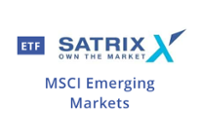 -
-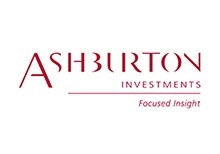
We also split international equities into developed and developing markets:
Ashburton Global 1200 (developed markets pick) is another young fund, less than six months old. The ETF returned 6.15% during April, buoyed by strong performances from the UK and Europe.
Our choice for Satrix MSCI Emerging Markets (developing markets pick) is motivated by its diversification. The fund provides exposure to high-growth economies such as China and India, which are not included in any of the developed market funds, thus offering further diversification.
Domestic:
Satrix SA Quality remains our choice for this segment despite a subdued performance over the past two months. The ETF gained a measly 1.51% during April, but that leaves its six-month return at a comfortable 19.75%.
Bonds and Cash:
NewFunds TRACI 3 Month - Satrix ILBI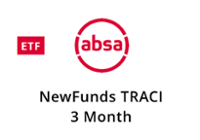 -
- 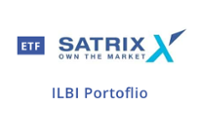
NewFunds TRACI 3 Month - (short term pick) it is similar to earning interest on your cash at the bank with a minimal possibility of capital loss. Its return was 0.6% in April.
Satrix ILBI ETF - (long term pick) for a longer investment horizon, protecting your investment against inflation is paramount. Less than a year old, it promises to have the lowest expense ratio of 0.22% compared with peers. It lost 2.72% during April in line with other bond ETFs.
Dividend:
Satrix Dividend Plus and CoreShares S&P South Africa Dividend Aristocrats come to mind here, but similarly, property funds are high dividend payers. We maintain our choice of the capped fund Satrix Property ETF. The fund has an expected TER of 0.30%, which makes it the cheapest in the segment. The property sector has fallen on hard times lately but we believe that is transitory. The Satrix Propaerty fund made a marginal return of 6.88% in March.
Multi-Asset:
NewFunds Mapps Growth - NewFunds Mapps Protect
If you find the process of diversifying your portfolio daunting,
these two ETFs combine equities and bonds to produce a diversified portfolio for two investor archetypes.
SA’s Smart beta segment
Smart beta, also called alternative beta, is the fastest-growing category in the investment industry. A study by the Financial Times (Mooney Attracta, 2017) found that that assets under management (AUM) in smart beta funds grew 30% a year between 2012 and 2017. While the segment is still at an early stage locally, we expect it to gain traction in line with global trends.
Now, only Absa’s NewFunds, CoreShares and Satrix have smart beta ETF offerings. However, with the launch of eight new smart beta indices by the JSE in August last year we expect to see more fund managers launching ETF funds to track these indices.
You can read up on Intellidex's insights on Smart Beta ETFs, market summary, investment strategies, and May 2018 picks here
Background: Exchange-traded funds (ETFs)
Exchange-traded funds (ETFs) are passively managed investment funds that track the performance of a basket of pre-determined assets. They are traded the same way as shares and the main difference is that whereas one share gives exposure to one company, an ETF gives exposure to numerous companies in a single transaction. ETFs can be traded through your broker in the same way as shares, say, on the EasyEquities platform. In addition, they qualify for the tax-free savings account, where both capital and income gains accumulate tax free.
Benefits of ETFs
- Gain instant exposure to various underlying shares or bonds in one transaction
- They diversify risk because a single ETF holds various shares
- They are cost-effective
- They are liquid – it is usually easy to find a buyer or seller and they trade just like shares
- High transparency through daily published index constituents
If you thought this blog was interesting, you should also read:
Intellidex Reviews: ABSA NewFunds S&P Govi SA Industrial 25 ETF
Disclaimer
This research report was issued by Intellidex (Pty) Ltd. Intellidex aims to deliver impartial and objective assessments of securities, companies or other subjects. This document is issued for information purposes only and is not an offer to purchase or sell investments or related financial instruments. Individuals should undertake their own analysis and/or seek professional advice based on their specific needs before purchasing or selling investments. The information contained in this report is based on sources that Intellidex believes to be reliable, but Intellidex makes no representations or warranties regarding the completeness, accuracy or reliability of any information, facts, estimates, forecasts or opinions contained in this document. The information, opinions, estimates, assumptions, target prices and forecasts could change at any time without prior notice. Intellidex is under no obligation to inform any recipient of this document of any such changes. Intellidex, its directors, officers, staff, agents or associates shall have no liability for any loss or damage of any nature arising from the use of this document.
Remuneration
The opinions or recommendations contained in this report represent the true views of the analyst(s) responsible for preparing the report. The analyst’s remuneration is not affected by the opinions or recommendations contained in this report, although his/her remuneration may be affected by the overall quality of their research, feedback from clients and the financial performance of Intellidex (Pty) Ltd.
Intellidex staff may hold positions in financial instruments or derivatives thereof which are discussed in this document. Trades by staff are subject to Intellidex’s code of conduct which can be obtained by emailing mail@intellidex.coza.
Intellidex may also have, or be seeking to have, a consulting or other professional relationship with the companies mentioned in this report.
Subscribe To Our Research Portal
Search all research
Let Us Help You, Help Yourself
From how-to’s to whos-whos you’ll find a bunch of interesting and helpful stuff in our collection of videos. Our knowledge base is jam packed with answers to all the questions you can think of.
